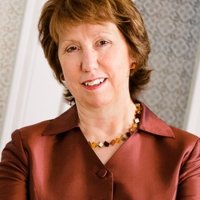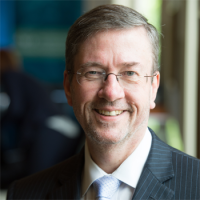Transatlantic Tranquility? Considering the Future of U.S-European Relations in a Farewell Event for the Hon. Jane Harman
Hon. Jane Harman reflects with dear friends on the past decade of her tenure at the Wilson Center, and discusses with them the next decade of transatlantic relations. Will Europe continue to pursue “strategic autonomy?” How can the transatlantic partners address China’s rise? Will old institutions such as NATO be remodeled, will Brexit last forever?
Watch the conversation with the Hon. Jane Harman, Wilson Center President, and CEO; Ambassador Wolfgang Ischinger, Chairman of the Munich Security Conference; and The Right Honourable Catherine Ashton, Baroness of Upholland, Wilson Center Global Europe Chair.
This event was co-sponsored by the Munich Security Conference.
Selected Quotes
Jane Harman, Wilson Center CEO and President
“Biden is the most experienced foreign policy president we have had since George H. W. Bush. The presidents since have not have had foreign policy jobs. Not only has Biden been everywhere but he also had the senior roles on the Senate Foreign Relations Committee – that is baptism by fire because the Senate has been more partisan over the years.”
Catherine Ashton, Wilson Center Global Europe Chair
“President Putin and Russia operate on the principle of a wedge. If you have within a nation some part of it that is operating differently, separated out, that is able to create a wedge into the future development of that country – be it a desire to join the EU or NATO, or simply be it to follow a development model that is distinct and different from the model that Russia might wish. Putting a wedge in does the job, relatively cheaply. We don’t have an answer to that.”
Ambassador Wolfgang Ischinger, Chairman of the Munich Security Conference
“I would base my advice on old, well-known quote from John F. Kennedy. In other words: Let’s not wait for Joe Biden to make things right, let us be proactive and engage with the United States. Let’s not ask what the U.S. wants to do about us, Europe, and the relationship, let’s ask ourselves what we can and should do in our own interest for the future of this relationship that is so vitally important for us.”
Speakers


Chairman of the Munich Security Conference (MSC), former State Secretary (Deputy Foreign Minister) of Germany, formerly Germany's Ambassador to the U.S.

Former Vice President of the European Commission and former High Representative of the EU for Foreign Affairs and Security Policy
Moderator

Hosted By

Global Europe Program
The Global Europe Program is focused on Europe’s capabilities, and how it engages on critical global issues. We investigate European approaches to critical global issues. We examine Europe’s relations with Russia and Eurasia, China and the Indo-Pacific, the Middle East and Africa. Our initiatives include “Ukraine in Europe”—an examination of what it will take to make Ukraine’s European future a reality. But we also examine the role of NATO, the European Union and the OSCE, Europe’s energy security, transatlantic trade disputes, and challenges to democracy. The Global Europe Program’s staff, scholars-in-residence, and Global Fellows participate in seminars, policy study groups, and international conferences to provide analytical recommendations to policy makers and the media. Read more

